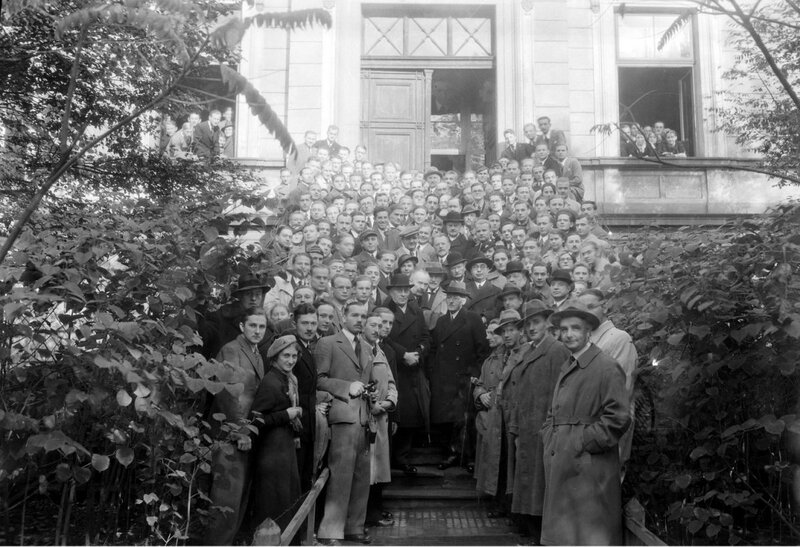The representative of the German occupation authorities, SS-Sturmbannführer Bruno Müller, commanded Jagiellonian University Rector, Professor Tadeusz Lehr-Spławiński to convene a meeting of all the university’s lecturers at the administrative center building in the Collegium Novum.
The meeting of 6 November 1939 turned out to be a trap – after a few-minute speech by Müller, in which he stated that the university had always been the “source of anti-German attitudes”, the professors were arrested. In total, 183 people were detained – mainly scholars associated with the Jagiellonian University, the University of Mining and the Cracow Academy of Commerce, as well as several other people who were then in the building or its surroundings at the time. The arrested were transported to the police prison on Montelupich Street, and then to the barracks on Mazowiecka Street. Several days later, 172 of them (a few people had been released in the meantime) were taken to Wrocław, from where they were transferred to the Sachsenhausen concentration camp located on the outskirts of Oranienburg.
The eradication of the Polish intellectual elite
The police action of imprisoning the Cracow professors was part of a broader plan to eradicate Polish elites. The Intelligenzaktion operation, which lasted from the moment the Germans entered Poland in the autumn of 1939, was carried out mainly in the territories incorporated into the Reich. However, actions aimed against the Polish intellectual elites also took place in the General Government, where from the spring of 1940, they were continued under the so-called operation AB.
